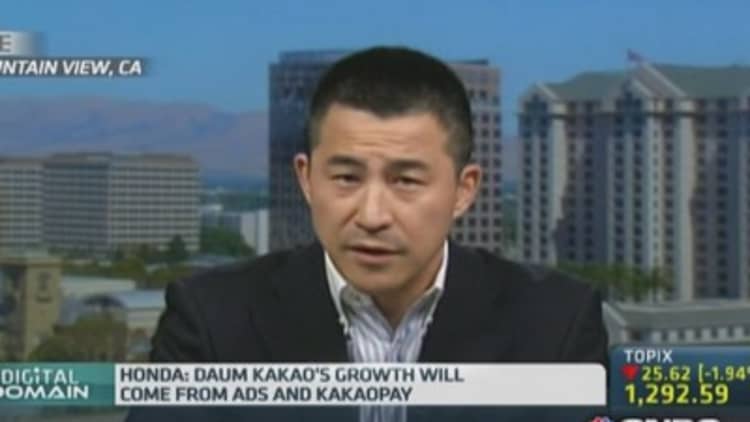As inflation expectations in South Korea drop, experts are debating whether Asia's fourth-largest economy risks Japan-style inflation.
"The economy is very much nearing Japan-style deflation insome aspects. It's not an unreasonable situation for Korea with export growth falling and weak domestic spending," said Tim Condon, head of Asia research at ING.
Consumer inflation expectations for the next twelve months fell to their lowest level since the Bank of Korea (BOK) began keeping track in 2002, a survey released this week showed.
Read MoreSouth Korea central bank cuts interest rates to boost economy
Finance minister and Deputy Prime Minister Choi Kyung-hwan has repeatedly compared the economy to Japan's during the early 1990s – the early stages of its 20-year deflation period.
Similarities include a significant decrease in long-term inflation and growth. Consumer price inflation (CPI) remained in the 1 percent range for 22 consecutive months, well below the central bank's 2.5-3.5 percent target band. Meanwhile, President Park Geun-hye warned on Wednesday that the country risks a long-term slump with 2014 growth seen at 3.5 percent, below the central bank's projections for 3.8 percent.

Moreover, the Korean won is also overvalued against the yen, just as the Japanese currency was against the dollar during the '90s. The won has appreciated 33 percent against the yen over the past two years, according to Reuters.
Finance Minister Choi unleashed a $39 billion fiscal stimulus package, equivalent to nearly 3 percent of the country's gross domestic product, in July - an attempt to boost spending.
Read MoreChoinomics -Breakthrough for South Korea?
So far, the stimulus has worked: household borrowing rose at the fastest pace in eight years. But Condon of ING warns that authorities must monitor whether households increase spending instead of paying back debt, which could result in a credit boom and miss the purpose of stimulus.
Is it really that bad?
Some experts, including BOK governor Lee Ju-yeol, believe the economy is merely in a disinflationary stage. At the BOK's monetary policy review earlier this month, Lee said there's no imminent risk of following Japan's footsteps, blaming weaker oil prices for low inflation.

Euler-Hermes agrees. In a report this month, the credit insurance firm attributed the economy's situation to external shocks, such as sliding commodity prices and China's slowdown, rather than domestic fundamentals.
Read MoreLandlords, tenants help lift South Korean economy
"Growth prospects are expected to strengthen gradually, supported by improving domestic demand, with the government's job creation scheme calling for a rise in household expenditure. The central bank has room to maneuver and should be more aggressive if inflation continues to move far below its target," the report said.
Moreover, an 80 percent increase in the price of cigarettes next year is expected to squash deflationary risks, experts say.
"The government plans to raise tobacco prices by 2,000 Korean won (roughly $2) per pack and that is expected to raise CPI inflation by 0.6 percentage points," Citi Asia analysts said in a note.
Read MoreAs nuclear waste piles up, South Korea faces storage crisis
More than 40 percent of South Korean males smoke, the highest rate among the Organization for Economic Cooperation and Development member nations.

